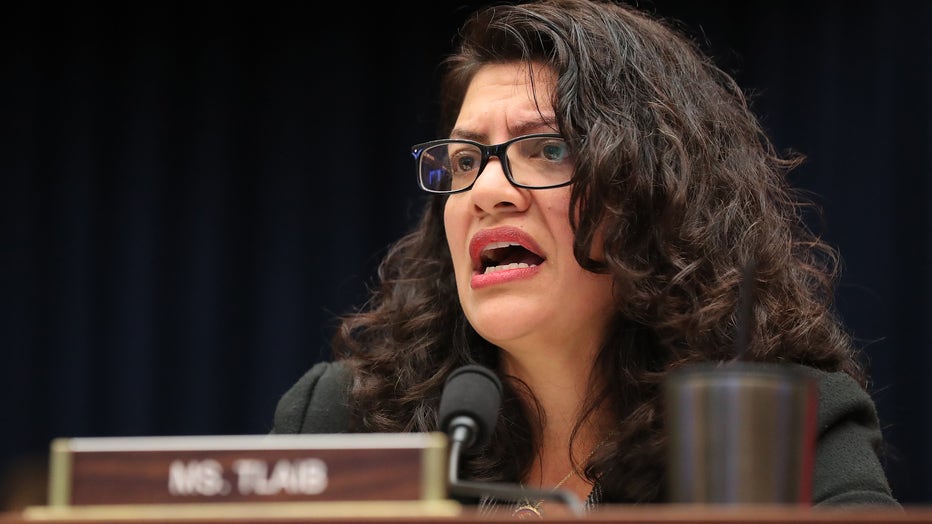Detroit Rep. Tlaib introduces bill for $2K relief, $1K recurring monthly payments
DETROIT - U.S. Rep. Rashida Tlaib has reintroduced legislation that would send a $2,000 relief payment to every American.

WASHINGTON, DC - OCTOBER 23: House Financial Services Committee member Rep. Rashida Tlaib (D-MI) questions Facebook co-founder and CEO Mark Zuckerberg during a hearing in the Rayburn House Office Building on Capitol Hill October 23, 2019 in Washingto
The bill, which the Detroit congresswoman first introduced last year at the beginning of the pandemic, also sends $1,000 recurring monthly payments for an additional year after the pandemic ends.
The Automatic BOOST to Communities Act would "uplift unbanked and underbanked" people whose cost of living has risen but their wages haven't, read a release announcing the bill.
"Folks need far more aid to pay their bills, purchase groceries, keep a roof over their heads, and other needs essential to maintaining a quality of life," Tlaib said in a statement. "The ABC Act is just that, designed to help cushion these blows during and after this global health crisis while chipping away at economic inequality in our society during the pandemic."
Tlaib first introduced the legislation last April as a way of offsetting the costs incurred on people during the pandemic.
Tlaib, who represents Detroit's 13th District in the U.S. House, cited polling that found bipartisan support for a universal basic income. A study by the Data for Progress, a liberal think tank said 66% of respondents in a survey supported the recurring payments, including 52% of Republicans.
However, the idea of a universal basic income becoming installed in the United States is a longshot in a divided Congress that has been passing legislation with slim majorities. That includes a massive $1.9 trillion aid package that cleared both sides of Congress with no GOP support.
RELATED: New $1.9 trillion Covid relief bill requires fast allocation of funds after Michigan's ongoing delay
The recurring payments would be funded with the creation of two $1 trillion coins that the Federal Reserve would purchase and deposit in the U.S. Treasury. From there, the money would go on to U.S. citizens.
The explosion in excess cash from the federal government is expected to help a lot of people struggling to stay afloat. However, it's also created concerns of inflation that will send the value of the dollar down.

